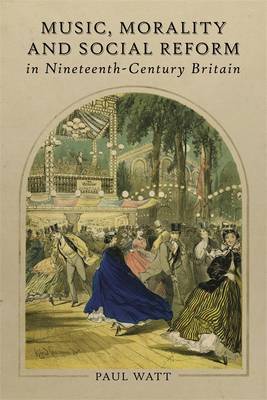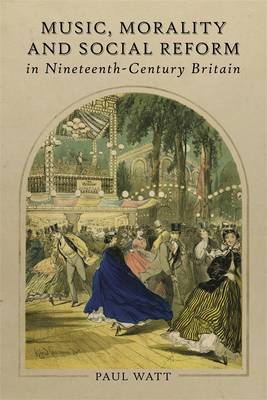
Bedankt voor het vertrouwen het afgelopen jaar! Om jou te bedanken bieden we GRATIS verzending (in België) aan op alles gedurende de hele maand januari.
- Afhalen na 1 uur in een winkel met voorraad
- In januari gratis thuislevering in België
- Ruim aanbod met 7 miljoen producten
Bedankt voor het vertrouwen het afgelopen jaar! Om jou te bedanken bieden we GRATIS verzending (in België) aan op alles gedurende de hele maand januari.
- Afhalen na 1 uur in een winkel met voorraad
- In januari gratis thuislevering in België
- Ruim aanbod met 7 miljoen producten
Zoeken
€ 177,45
+ 354 punten
Omschrijving
This book discusses the role of music in programmes of personal improvement and social reform in nineteenth-century Britain. The pursuit of morality through music was designed not just to improve personal and communal character but to affect social change and transformation. The book examines the musical education of children, women and men through a variety of literature published for various educational settings including mechanics' institutes. It also considers the role of music in narratives of social programs and community-building projects that sought to promote utility, well-being and freedom from the strictures of Christianity as the dominant moral and cultural force. The first book to connect the threads between music, moral instruction and social reform across the educational life cycle in nineteenth-century Britain, it shows how these threads are found in unlikely places, such as games, manners books, economics treatises and short stories. It deftly illustrates the links between everyday life, popular culture and discourses of morality and social reform of the period.
Specificaties
Betrokkenen
- Auteur(s):
- Uitgeverij:
Inhoud
- Aantal bladzijden:
- 228
- Taal:
- Engels
Eigenschappen
- Productcode (EAN):
- 9781837650811
- Verschijningsdatum:
- 21/11/2023
- Uitvoering:
- Hardcover
- Formaat:
- Genaaid
- Afmetingen:
- 156 mm x 234 mm
- Gewicht:
- 498 g

Alleen bij Standaard Boekhandel
+ 354 punten op je klantenkaart van Standaard Boekhandel
Beoordelingen
We publiceren alleen reviews die voldoen aan de voorwaarden voor reviews. Bekijk onze voorwaarden voor reviews.









